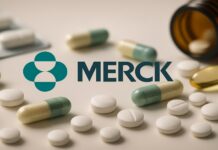The NHS has used its purchasing power to negotiate lower rates for dozens of hospital medications, saving taxpayers £1.2 billion in only three years while obtaining cutting-edge therapies for patients.
One third of the savings have been attributable to the usage of less expensive versions of a single medication called adalimumab, which is used to treat more than 45,000 individuals with rheumatoid arthritis, inflammatory bowel disease, and psoriasis. The NHS struck cost-saving agreements to purchase large quantities of generic brands of the medication, which has the same purity, security, and effectiveness as a branded one, after an exclusive patent on the medication, formerly known as its brand name Humira, expired in 2018.
Since then, hundreds of millions of pounds have been saved by purchasing less expensive generic versions of various medications for illnesses associated with severe skin conditions to aggressive blood cancers. Today, the NHS prescribes four out of every five non-branded medications, which helps the organisation save a lot of money while continuing to provide high-quality patient care.
Smart arrangements by the NHS guarantee patients get the greatest medications and taxpayers get the best value, said Amanda Pritchard, chief executive of the NHS. By negotiating better prices for large quantities of both branded and non-branded drugs, the NHS has once again demonstrated its commercial power to ensure cutting-edge treatment to patients while relieving £1.2 billion in taxpayer funds. This ensures that their frontline staff have the necessary medications to enable better patient care wherever they live.
This strategy is a pillar of the NHS Long Term Plan, offering patients access to the most recent, life-changing medications as soon as possible and guaranteeing that every NHS pound is spent effectively. Examples include better value therapy for arthritis and a one-shot injection for spinal muscular atrophy.
They are committed to giving the doctors and nurses the medications they require to help patients in every situation, said Blake Dark, director of NHS Commercial Medicines. These numbers show that they are still doing that while also upholding their duty to give taxpayers value for their money. More than 55 million people are served by the NHS, necessitating the procurement of millions of tablets, injections, and infusions. This also gives them the opportunity to leverage their significant commercial purchasing power to negotiate prices that result in significant savings for the health system.
The NHS is moving to a new approach to buying generic medications, needing providers to store excess medicines on UK soil, offering a backup amount of inventory that can be rapidly massed so doctors would be able to view their first-choice care for every patient treated in secondary care. This new approach will result in the £1.2 billion in savings that have been announced.
In addition to these considerable cost reductions, the NHS also maintains patient access to innovative new therapies, such as the one-shot Zolgensma injection for spinal muscular atrophy and the life-saving gene treatment Libmeldy for the uncommon condition metachromatic leukodystrophy.
The provision of life-changing medicines at a reasonable price while ensuring the best value for money is great news for patients and taxpayers, according to Sajid Javid, Health and Social Care Secretary.
Once again, the UK is at the forefront of allowing patients early access to cutting-edge medications. Thank you to clinical staff, including pharmacy colleagues across the nation and coworkers from national patient institutions who, by continuing to work together, are allowing the healthcare system to produce for the purpose of providing top quality and patient safety from the investment in medicines as well as value for taxpayers, said David Webb, chief pharmaceutical officer for England.
In order to continue improving patient outcomes, they are also executing programmes to make sure they are responsible prescribers who use medications appropriately, efficiently, and with an updated review. The NHS took the lead in developing the first successful therapy for hospitalised patients with COVID-19 using the generic drug dexamethasone, and it is now taking the lead in looking for ways to repurpose other medications through a multi-agency approach.
A strong collaboration between the NHS and the generic medicine industry is crucial to enabling patient access to therapies while delivering better value for the health service, said Chief Executive of the British Generic Manufacturers Association, Mark Samuels. While some of the lowest generic drug prices in Europe assist in producing considerable savings for taxpayers, working in conjunction with the British generics business also aims to guarantee that NHS hospitals have a secure supply of drugs for patients across the country.
Beginning in June, NHS England and the National Institute for Health and Care Excellence (NICE) introduced the Innovative Medicines Fund, which will support quicker access to non-cancer medications and complement the existing Cancer Drugs Fund by providing ring-fenced NHS funding for innovative medications totaling £680 million.
96% of participants in the discussion on the Innovative Medicines Fund expressed support for the goal of the new fund, which would empower patients to take advantage of novel treatment alternatives while additional data is gathered to guide a decision on their customary use.




















